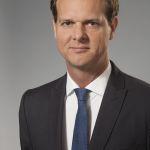Summary
The municipal elections in May were the first major step towards an ambitious decentralisation project in Tunisia. Yet although the administrative structure is continuing to evolve alongside a democratising system, the aim of improving the state-society relationship has been jeopardised by record-level abstentions.
Following a string of postponements since October 2016, municipal elections were eventually held in Tunisia in May this year. The newly elected local councils are replacing temporary bodies – established after President Ben Ali’s flight in early 2011 – in 350 municipalities, with more than 7,000 seats up for election. In addition to the provisions of the 2014 Constitution, the legal basis was provided by the Code des Collectivités Locales, eventually agreed upon in parliament a matter of days before the polling stations opened. This apparent dilly-dallying raises important issues: the reform schedule for revamping the state’s governing structures might be considered too ambitious and hence lacks the full support of the MPs. In addition, the sustained political crisis forestalls progress by impeding consensus, as witnessed around the question of allowing security personnel to vote.
Either way, the electorate remained unconvinced, abstaining from voting in unseen numbers, reducing the voters for the modernist Nidaa Tounes platform by a sheer million, whereas the Islamist En-Nahda lost 500,000. In other words, roughly a third of the eligible electorate decided on the fate of this new institution, which was supposed to epitomise a new trend in political representation, entrench participation, and improve bottom-up decision-making. The second remarkable outcome was the winning block. Independent candidates beat both big parties for the first time since elections became free in 2011 – even though some turned out to be partisan, such as the En-Nahda-affiliated new mayor of Tunis, the first woman ever in this position.
Yet despite strong expressions of discontent, the two large blocks managed to retain their relative supremacy, reflected in particular in the successful staffing with En-Nahda mayors in 18 out of 20 major municipalities.
The reform proper, tackling a strongly centralised and tightly controlled bureaucratic apparatus via decentralisation was conceived in the spirit of democratisation. On the one hand, by enabling the political participation of the electorate at all levels, thereby transforming them into genuine citizens. On the other hand, by devolving state power away from the capital, and the presidency, by limiting the executive powers of regional governors. Furthermore, the rationale is to provide the tools for autonomous management to counter what is commonly referred to as the ‘marginalisation’ of certain regions – in practice, neglect – partially explained by the limited means of a developing country.
However, wresting control from the central state and disseminating agency to local actors implies a number of practical challenges, including the management of financial and fiscal autonomy, as well as questions related to oversight, coordination and efficiency.
In addition, at this stage of the transition, the broader context might not be particularly conducive to proceeding with the decentralisation project, which requires additional polls at regional and provincial levels in order to come to complete fruition. Societal, political and security issues abound. Shortly after the elections, the Commission on freedoms and equality (COLIBE) presented its findings, a project initiated at the behest of President Es-Sebsi. The major bone of contention relates to the Commission’s proposal to introduce equal inheritance, laying bare the gulf that separates modernists from the worldview of Islamist traditionalists, increasing tensions in the socio-political realm. At the same time, the president’s party, Nidaa Tounes, is currently undergoing a process of auto-destruction, with PM Chahed rallying loyal forces around him against the presidency and its nepotistic reflexes. Finally, the state of emergency has recently been extended due to high terrorist risks – proven expedient by the recent thwarting of a major terrorist plot. Such developments increase uncertainty, compounded by the continued inability of parliament to staff the Constitutional Court, which is supposed to translate the much-lauded constitutional compromise into practical terms through the provision of checks and balances – and the emergence of an independent judiciary.
The inclusion of decentralisation as a major reform element in the 2014 Constitution expresses the high, idealised hopes attached to this project by political players across the board, situated at the intersection of reform, democratisation and development. Whereas in Arab countries it is often called for by marginalised communities (the Kurds in Syria or Iraq, or the Shia minority in Saudi Arabia) to improve their lot via increased autonomy, the purpose of the Tunisian project is not to defuse tensions between ethnic or confessional communities, but to increase citizens’ participation in the political process by freely electing their representatives at the municipal level.
In order to unleash its potential in the newly democratising environment, two requirements must be met. The top-down, legally formulated institutional reform process requires legitimisation by popular vote. Conversely, the reform can only function if the post-revolutionary socio-economic expectations of the electorate are addressed by the newly elected bodies.
However, ever-decreasing levels of participation in free elections since 2011 (minus 45% for En-Nahda) indicate a profound disenchantment and lack of trust in the new system of political representation. In the event that Nidaa Tounes doesn’t consolidate around a modernist reformer unhampered by vested interests (of the old regime), and if the Islamist En-Nahda continues to lose its appeal among its traditionalist constituency by moving – at least rhetorically – closer to the centre, while antagonising considerable parts of the population with the long-term prospect of wholesale Islamic indoctrination, the parliamentary and presidential elections in 2019 may well form the prelude to a profound structural crisis.

